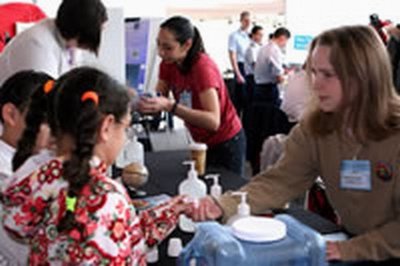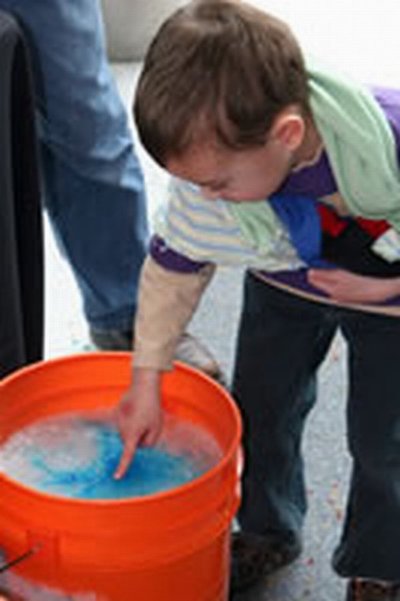March 6, 2008
UW, Pacific Science Center expand Polar Science Weekend activities
Smash ice, turn your tongue into a salinometer to experience how saltiness differs in the world’s oceans, explore an igloo and field camp, predict polar climate, dive into the world of oceanographic moorings and get your hands on real scientific instruments during the third annual Polar Science Weekend today through Sunday at Pacific Science Center.
The event involves more than 30 UW researchers, graduate students and staff members, mainly from the UW’s Applied Physics Laboratory. Meant to appeal to all ages, the event is primarily aimed at families, teachers and students.
Last year some 11,000 persons attended Polar Science Weekend, more than double the number who took part the first year, according to Dick Moritz, principal oceanographer with the Applied Physics Laboratory. He and Ellen Lettvin, assistant director at the lab, are the UW organizers of the event being done in partnership with the Pacific Science Center.
New this year is the chance to talk with Carl Kippi, a native resident of Barrow, Alaska, who was the subject of a short film shown at the Sundance Film Festival about teaching his son to hunt on the ice and also the opportunity to hear about UW research using audio recordings to study marine mammals in the Arctic and Antarctica. New exhibits include photos of polar bears by Matthew Felton and collages depicting polar exploration by Rik van Glintenkamp.
For a complete schedule see http://psc.apl.washington.edu/psw/.
“This is outreach where we provide current science and try to make it more active and interesting by having real experts there to explain the exhibits,” Moritz says. With a record-breaking loss of sea ice in the Arctic last year, scientists will be helping the public understand the connections between global warming and some of the changes being seen in the polar regions.
Along with helping organize this event, Moritz and Lettvin were recently asked to serve on an advisory group for Pacific Science Center’s new “Portal to the Public,” a National Science Foundation-funded effort to get scientists in other areas of research in contact with the general public.
Tag(s): Applied Physics Laboratory • Polar Science Weekend




